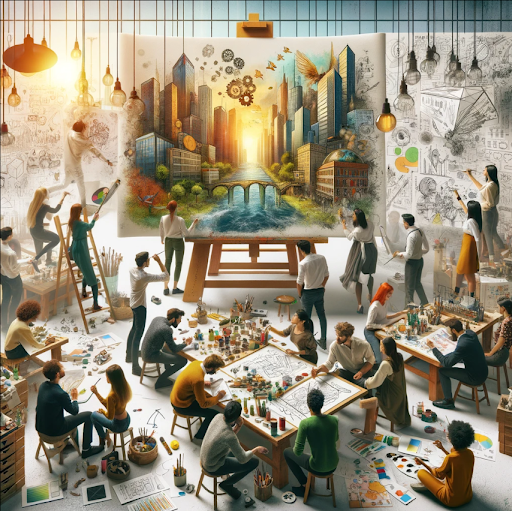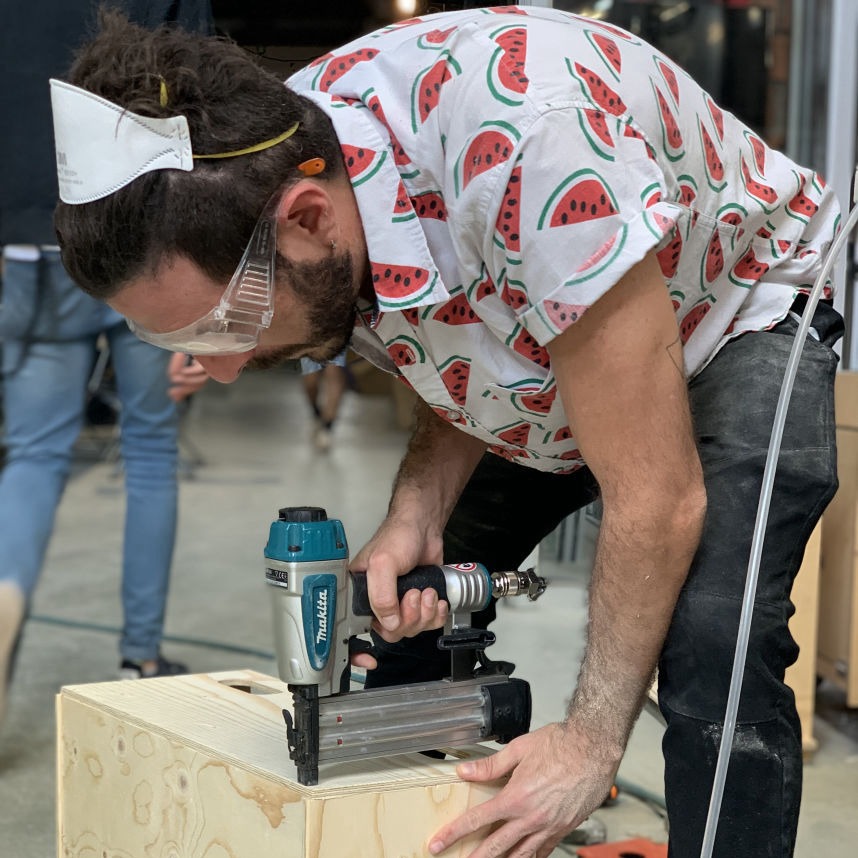Syllabus⇝
This course progresses from the foundational communication skills developed in the first term, focusing on the practical application of those skills. Students will refine their ability to effectively communicate their design projects, utilizing digital channels and multimedia content, culminating in the delivery of an effective elevator pitch.
Keywords: Storytelling, Communication, Multimedia, Digital Strategy, Elevator Pitch
Learning Objectives⇝
- Development of Messages and Communication Channels: Equip students with the necessary tools to develop clear and effective messages for their projects, utilizing various digital communication channels.
- Creation of Multimedia Content: Guide students in the creation of attractive and professional content, such as teaser videos, to promote their projects.
-
Preparation of Effective Presentations: Assist students in developing and perfecting their elevator pitch and other oral presentation forms in front of different audiences.
-
Understanding project’s narratives and storytelling
- Develop a written publication
Methodological Strategies⇝
- Case studies.
- Workshops.
- Project-based learning.
- Peer learning.
Schedule⇝
Development of Messages and Selection of Communication Channels
- Identification of project key messages.
- Selection and optimization of digital communication channels.
- Message development workshop.
- Communication channels analysis and strategic selection.
- Social media profile creation and management.
- Content planning and editorial calendar setup.
Creation of Multimedia Content
- Theory of creating teaser videos.
- Structure and production of visual communication material.
- Practical video production workshop.
- Brainstorming sessions and visual content design.
Preparation and Execution of Effective Presentations
- Elevator pitch structure and techniques.
- Initial one-minute project pitch by each student without visual aids.
- Elevator pitch workshop with detailed structure.
- Analysis of successful elevator pitch examples and resources.
Personal Narrative
- Narrative/ Storytelling of my project
- Understanding project’s narratives
Publication
- Writing Triangle
- The problem, the issue to be addressed
- Position
- Resources and "montage”
- Writing. Coherence. Argumentation
- Text coherence
- Argumentation
- Precautions before, during, and after the writing process
- On content and argumentation
- Some frequent fallacies and argumentative errors
- After writing: Is there a thread of argument in my text?
Deliverables⇝
- Message and content identification plan
- Teaser video to promote their projects
- Elevator pitch for their project
Grading Method⇝
| Percentage | Description |
|---|---|
| 40% | Individual Communication Plan |
| 30% | Teaser video |
| 30% | Final Presentation - Elevator Pitch |
European Credit Transfer and Accumulation System (ECTS)
1 ECTS
Additional Resources⇝
Borg, E. (2012) 'Writing differently in Art and Design: Innovative approaches to writing tasks' in Writing in the Disciplines Building Supportive Cultures for Student Writing in UK Higher Education. ed. Christine Hardy and Lisa Clughen. Bingly, UK:Emerald Group Publishing Limited
Faculty⇝
Experienced Creative Director with 15+ years in global agencies and brands across Latin America and Europe. Holds a Master's in Future Design, specializing in digital manufacturing and emerging tech. Over 6 years of teaching in diverse universities, focusing on communication, creativity, design, and storytelling.
Founder of POWAR, a Barcelona-based R+D Ed-Tech studio driving planet-centred STEAM education. Known for strategic vision, expertise in innovation, project management, and audiovisual production. Researching around the future of education.
Laura Benitez has a Ph.D. in Philosophy and is a researcher, and university lecturer. Her research connects philosophy, art(s), and technoscience. She is an associate professor at the Department of Philosophy at the Autonomous University of Barcelona. She also teaches at Elisava. She has served as the coordinator of the Theory area in the Arts and Design Degree at Massana, where she has taught Critical and Cultural Studies. She has been a visiting researcher at the Ars Electronica Center and the Center for Studies and Documentation of MACBA. She has also collaborated with international institutions such as Interface Cultures Kunstuniversität Linz, Sónar Festival (Barcelona/Hong Kong), Royal Academy of Arts London, and the University of Puerto Rico. Between 2019 and 2021, she directed Biofriction, a European project (Creative Europe) on bioart and biohacking practices, led by Hangar in collaboration with the Bioart Society, Kersnikova, and Cultivamos Cultura. She is co-director of the Master on Design For Emergent Futures (MDEF).


